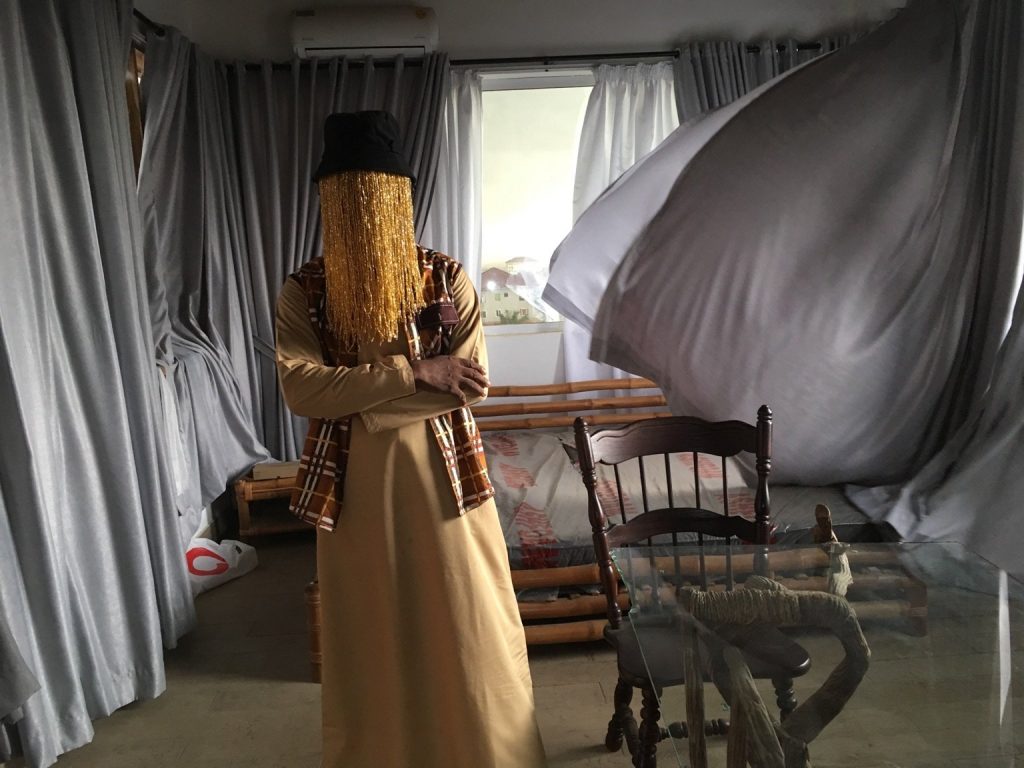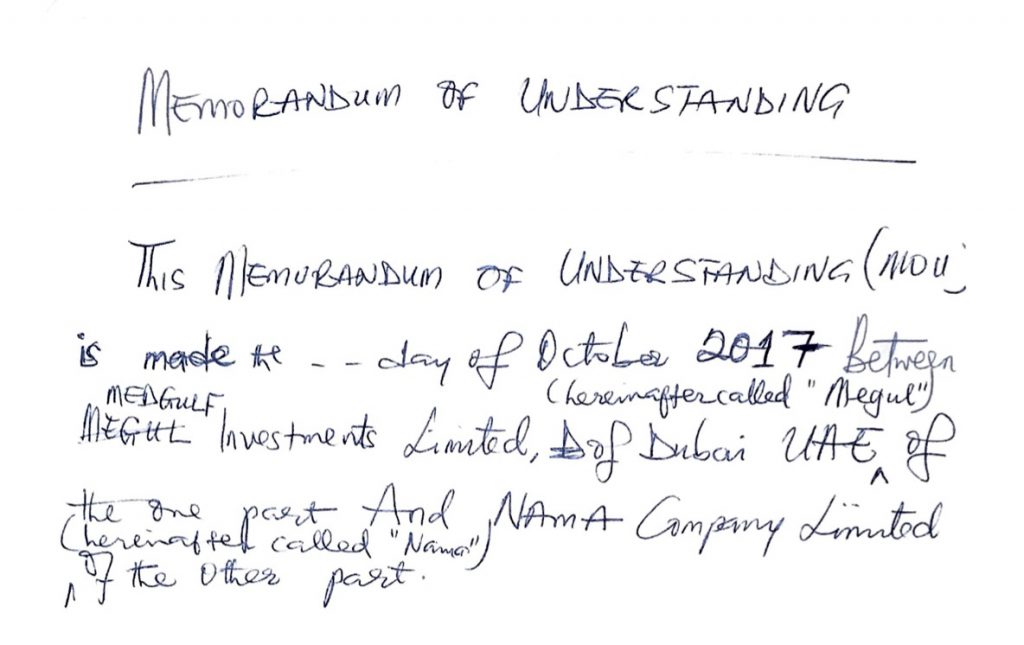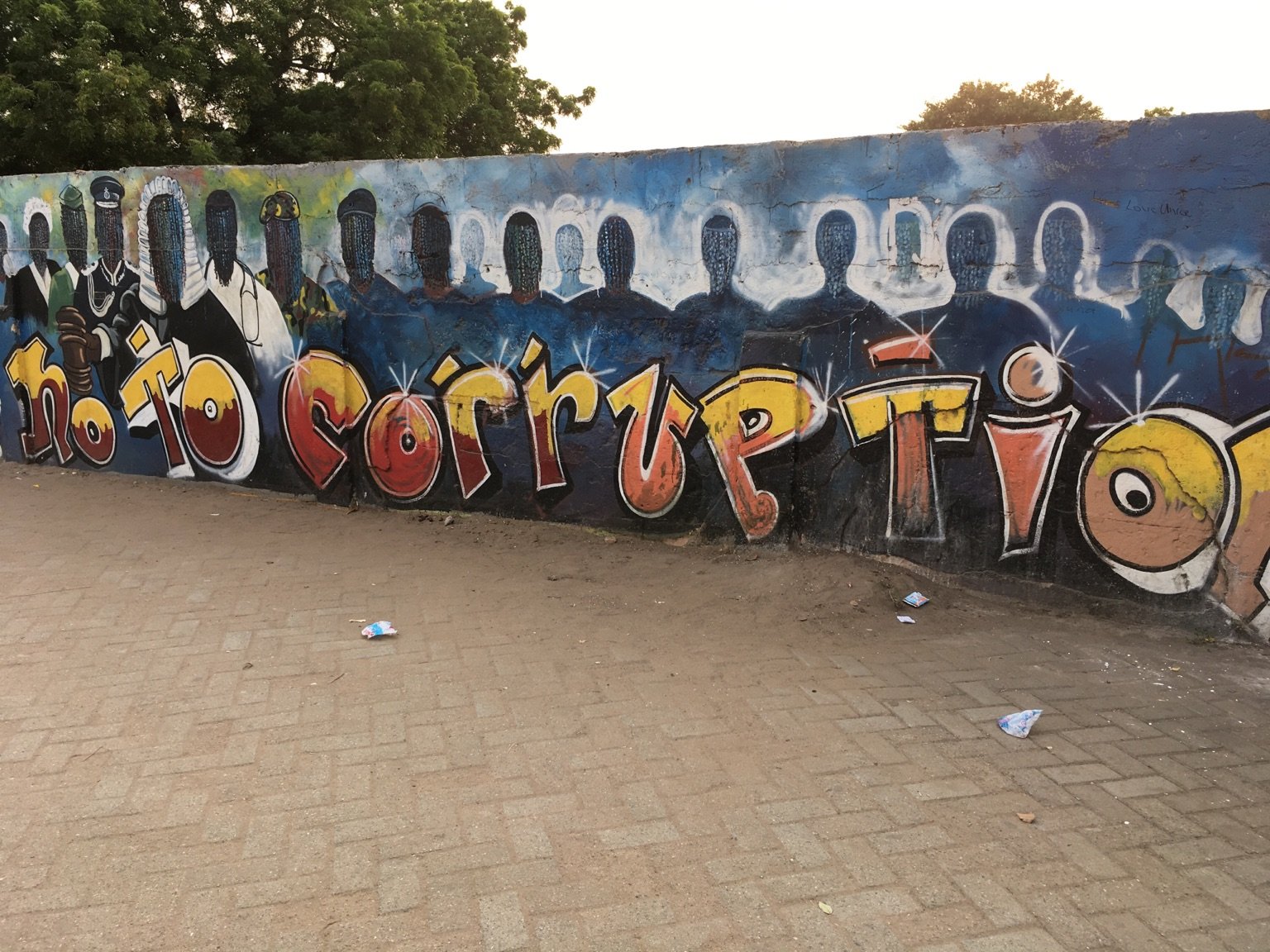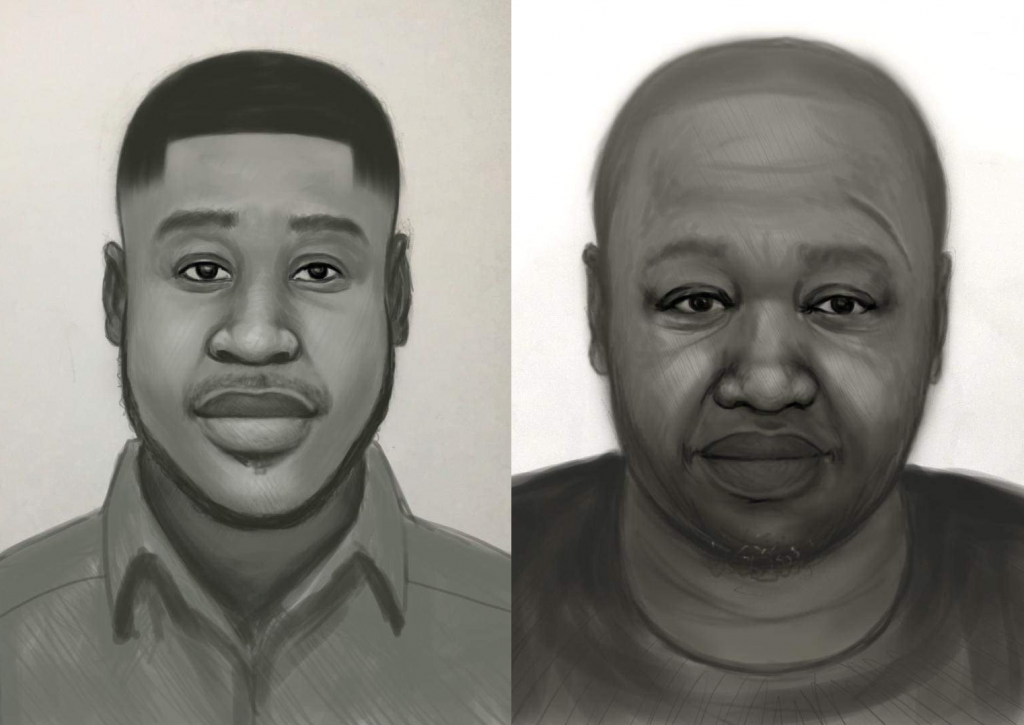- Reading time: 10 min.
Football in Ghana : an off-limits investigation
A year after the assassination of Ahmed Hussein-Suale, Guillaume Perrier went to Ghana for Forbidden Stories. He followed in the footsteps of the investigative journalist who revealed the extent of corruption in Ghanaian football.
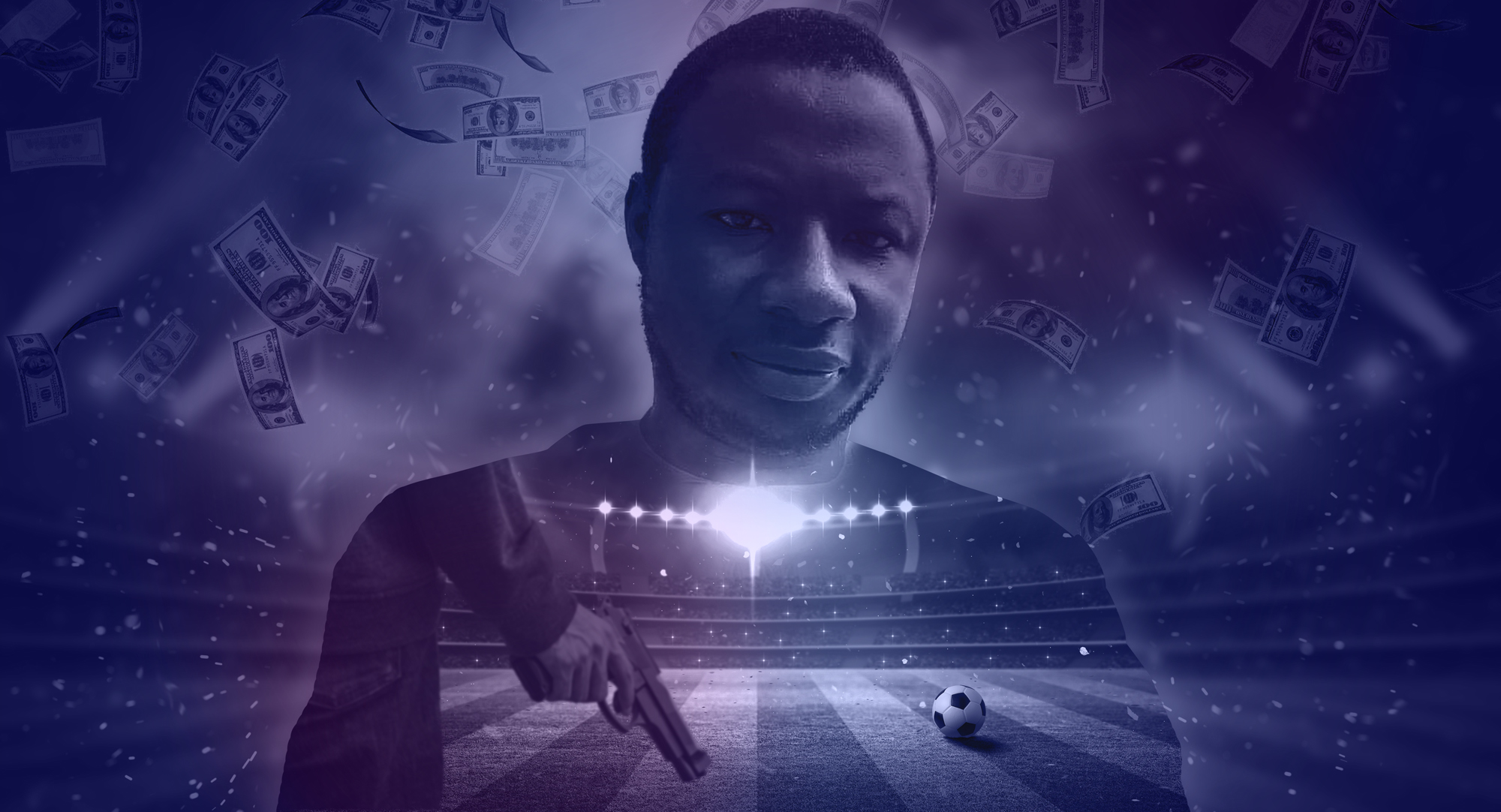
By Guillaume Perrier
January 16, 2020
A year after the assassination of Ahmed Hussein-Suale, Guillaume Perrier went to Ghana for Forbidden Stories. He followed in the footsteps of the investigative journalist who revealed the extent of corruption in Ghanaian football.
On 16 January 2019, Ahmed Hussein-Suale, a Ghanaian investigative journalist, was murdered in Accra. One year later, those who carried out that murder and those who ordered it are still at large, and the police seem to have overlooked many leads: in 2018, he had received death threats from a member of parliament following his investigation into corruption in football. We spoke with that member of parliament. New material that we are publishing here also shows the existence of other death threats, as well as a key witness to the murder, and sketches of the killers.
It is past 11 p.m. on the evening of 16 January 2019, as Ahmed Hussein Suale says good-bye to his brothers Ibrahim and Alhassane Yunus, and a few friends in the Madina district, a popular neighborhood in Accra. As he does almost every evening after work, he was here tonight to share a moment with people close to him, not far from the family home in a neighborhood of the Ghanaian capital where he grew up. The place is modest. A few plastic chairs arranged under a mango tree lit by the pale light of a naked bulb. A patchwork of simple shacks along a red earth alley lined with a few tiny shops. That evening, as he gets back to his car, a dark blue BMW, the investigative journalist is thinking about his nephew, who is ill, and who he is about to go visit. His uncle has just called him. The headlights illuminate the dark night, he starts the car, he slowly drives along the high wall of the Catholic church “Queen of Peace” and is about to enter the asphalt road. The road is practically deserted. A man is standing at the corner. He is waiting for him. Through the driver’s window, he fires two bullets at Ahmed Hussein Suale, who collapses on his side, hit in the chest. The car keeps going and crashes into the railing of a hair salon. The assailant approaches the car and fires a last bullet into the victim’s neck to finish him off, before fleeing on a motorcycle driven by his accomplice.
Protect your stories
Are you a journalist under threat because of your reporting? Secure your information with Forbidden Stories.
Ahmed’s murder at the age of 31 is an unusually serious act in Ghana, underlines Affail Monney, president of the Ghana Journalists Association and former director of the state-owned radio and television station (GBC). A serious act which shook up Ghana, considered one of the most stable and democratic countries on the African continent, and which was ranked 23rd in the world on the 2018 annual Reporters Without Borders press freedom index. The authorities promised to clarify the case and bring the killers to justice. “Intense efforts are being made to find Suale’s killer or killers. They will be found and brought to justice,” president Nana Akufo-Addo told the National Bar Association’s annual conference on 9 September 2019.
But according to him, it would be unfair to speak of an “attack on freedom of the press” in his country. Yet, one year later, the circumstances of the tragedy have yet to be clarified. The killers and their masterminds have not been arrested, and the investigation seems to be at a standstill. Many leads remain unexplored. The New York-based Committee to Protect Journalists (CPJ) refers to a similar case that occurred in 2015. It is the murder of George Abanga, 35, a reporter for Radio Success FM, who was shot dead while carrying out an investigation into cocoa plantations. This murder too remains unsolved. In February 2019, the spokesman for Ghanaian police told CPJ that an investigation was still underway.
One year after the events, Ibrahim and Alhassane are still waiting for the courts to deliver the names of those responsible for their brother’s murder. Already on 7 August 2019, together with other members of the family, they confronted the Inspector General of Police and deplored the lack of information on the state of the investigation. At the beginning of April, the Criminal Investigation Department (CID) reported that it had interrogated 13 people. Police announce on 12 April that a 29-year-old man they presented as the main suspect, Abdul Rachid Meizongo, was arrested, but then he was released shortly after. “Since then, we have had almost no news, no communication, we know nothing about what is going on,” Ibrahim regrets. The family remains without answers. They continue meeting up for tea or the local ginger-based drink, but Ahmed is no longer there. The BMW in which he was killed remains parked in the middle of the courtyard. The broken window was replaced and the blood stains on the seat were wiped away. A gri-gri is still hanging from his rearview mirror. And under the license plate is a “good luck” charm which did not protect him.
The BMW in which he was killed remains parked in the middle of the courtyard.
Ahmed Hussein Suale was an experienced investigative journalist despite his young age. He worked for the Tiger Eye PI collective, created and directed by Anas Aremeyaw Anas, a former lawyer turned journalist. Anas, now in his forties, became famous in Ghana and throughout Africa for his in-depth investigations and bombshell documentaries, which were aired by major international channels (BBC, Al-Jazeera). Anas, who was in Europe at the time, reacted to his friend’s death on Twitter: “Sad news but we will not be reduced to silence. Rest in peace Ahmed”. Ahmed Suale worked at his side on some explosive cases: corruption in the judiciary (In the Eyes of God, 2016, which led to the dismissal of around 100 Ghanaian judges suspected of receiving gifts and bribes), as well as ritual murders , arms trafficking… The methods used by the team of journalists are challenged by their rivals. Investigations are filmed with hidden cameras, and there is one goal: “name, shame, and jail”. A vigilante approach that is not approved unanimously but the main person concerned has no qualms about it. “We use the methods necessary to reveal such scandals”, Anas responds. Without ever showing his face, masked by a curtain of beads hanging from a hat, Anas is a theatrical character who takes care of his communication strategy and cultivates his dark side. In the course of his investigations, he often puts himself on stage and “ambushes” his targets by pretending to be their accomplice. Affail Monney, the president of the Ghana Journalists Association, fully endorses Tiger Eye’s methods. He points to “Article 13 of the press code of ethics” in Ghana and considers that “in cases where it allows decisive information to be obtained, the method of infiltration is completely legitimate”.
Football, last field of investigation
Ahmed Suale’s last investigation was the most sensitive one that he had to carry out: a two-year investigation into corruption in football. “Number 12” was co-produced by the BBC and was aired just before the June 2018 World Cup matches in Russia. The revelations in this documentary caused an earthquake in the world of football. Ghana, sometimes referred to as the “Brazil of Africa” for its talented football players, was now also famous for its corrupt referees. In the course of its investigation, “Tiger Eye” caught more than a hundred officials, referees, club administrators, and civil servants red-handed. Anas posed as a middleman in the service of the Hearts of Oak, the capital Accra’s great football club. During the entire 2017 season, he bought the games for 100, 200, 500 dollars or a sacrificial goat. He turned around the club’s big national game against Ashanti Kotoko, when the referee whistled a decisive penalty in favor of the Hearts with eight minutes to go. He influenced the outcome of the national championship, as well as games in the African Champions League and even international matches, by bribing referees of different nationalities (Kenyan, Ivorian, etc.). “Number 12 brings to light the extent of the corruption that we had been describing for years, the greed that reigns in this milieu. The magnitude of the problem surprised many people. Corruption was devouring the world of football and distracting from the spirit of the game,” Anas says, in his ultra-secure hideout, in a secret location in a residential area of Accra.
Ahmed played the lead role in the investigation “Number 12”, Anas tells us. He was the one who had, among other things, nailed the almighty president of the Ghana Football Federation and vice-president of the African Confederation (CAF), Kwesi Nyantakyi. To do this, the journalist posed as a middleman for a Qatari sheikh close to the Emir Al-Thani, who was offering to sponsor the Ghanaian football league to the tune of 15 million USD over three years. Kwesi Nyantakyi travelled to Dubai three times for meetings with the sheikh’s emissaries. He was filmed without his knowledge by undercover agents. In October 2017, in a hotel room, he pocketed $US 65,000 in bills of 50, wrapped in a plastic bag. At the end of these negotiations, Nyantakyi drafted by hand and in English, on CAF letterhead, a memorandum of understanding to establish a partnership between Medgulf, an investment company, and Namax, its exclusive partner in Ghana, owned by Kwesi Nyantakyi himself. We obtained this document which contains all the details. The president of the federation also urged his contacts to distribute kickbacks to political figures to obtain access to markets in Ghana. Five million USD for president Nana Akufo-Addo, three million USD for his vice-president, one million for the deputy minister of roads… The presidency called for an investigation against Nyantakyi
“He immediately saw an opportunity to make a lot of money,” Ahmed Suale’s and Tiger Eye’s lawyer Kissi Agyebeng says. “He wrote up the statutes for the Ghanaian company that was to be the sponsor’s intermediary. He would personally take 5% of the total amount and 20% for the front company. In addition, the money was to be channeled through an account belonging to his own financial institution”. That’s more than 4 million dollars that the Ghanaian football boss would have possibly pocketed if the deal had been finalized. He defended himself, but also resigned. “I committed a series of errors (…) with private discussions I had with ‘scammers’ who deceived me into thinking they were genuine persons interested in investing in our country”, he said in a statement, his only response since the revelations.
The fraudulent contract establishing a partnership between the investment company Medgulf and Namax, owned by Kwesi Nyantakyi.
Before being caught red-handed on the investigators’ hidden cameras, Kwesi Nyantakyi was one of the most powerful figures in African football. A banker and lawyer, elected president of the Ghana Football Association (GFA) in 2005, and then president of the West African Football Union (WAFU), vice-president of CAF and member of the FIFA board, he had also founded the Wa All Stars Premier League club, which won the national championship in 2016, before selling it in 2019. He had already been suspected of mixing up his various functions and giving himself some advantages. In 2014, he had been suspected of corruption over the amount of money he was paid in bonuses to organize friendly matches with the national team. Nyantakyi was obliged to reimburse the bonuses. “I worked with him until 2015, we knew certain things, but we didn’t have proof. Now we have them,” says Randy Abbey, the former GFA spokesman.
Part of the veil was now lifted on the “Nyantakyi System” as it was described by the football community. In the documentary, the former president of the federation boasts of having contacts in very high places, right up to the presidency. Those who had approached him in recent years were not surprised. This is the case for Marcel Desailly, the former French player of Ghanaian origin. “He had been in office for 13 years, accumulating titles. At some point, power makes your head spin,” says the 1998 World Cup Champion. “Twice he wanted to bring me in as coach of the national team. But I saw right away that it was a trap, that he had a lot of influence, without any control, that a lot of the money FIFA sent never reached its destination. He created a huge financial hole. But this problem of corruption belongs to all of Africa!” deems Marcel Desailly. “Kwesi had started out well, but he was doing too many things at once. With him, the clubs were getting less than half the sponsorship money. Agents and intermediaries took up to 25% in the process. Power corrupts, absolute power corrupts absolutely,” says Kudjo Fianoo, president of the national football league (GHALCA), one of his rare opponents to openly criticize Nyantakyi’s legacy.
The documentary “Number 12” showed Kwesi Nyantakyi pocketing a $65,000 bribe. (Source: BBC/Tiger Eye PI)
The scandal caused by Tiger Eye investigators’ exposé was immediate. FIFA, holding an emergency meeting, decided to put the GFA under the supervision of a Normalization Committee, whose members were appointed by FIFA in consultation with the Ghanaian government. The committee was charged with preparing the transition and writing the new statutes of the federation. This was no small task. Everyone who was accused or implicated was directly dismissed. Seventy-six investigations were conducted and 62 suspensions were issued against referees, according to Joe Debrah, president of the Referees Association of Ghana (RAG). For his part, Kwesi Nyantakyi was suspended for life from all football-related activities. This was the harshest sanction ever pronounced by FIFA against a top official. The accused defended himself before the Court of Arbitration for Sport, in July 2019, and is still challenging the decision.
Throughout the “normalization” process, the Ghanaian championship was put on hold. The mission of the Normalization Committee ended at the end of 2019. A new election was organized for the presidency of the GFA on October 25, to find a successor to Kwesi Nyantakyi. Among the candidates for the post was his former deputy George Afriyie. But it was 48-year-old Kurt Okraku, a manager at the first division club Dreams FC, who was elected in the second round . He took up his post at the end of November and the Ghana football league was finally set to start on 21 December, after 18 months without any national league matches. “We need to unite to rise to the challenges ahead,” he cautiously told us in August 2019 in Accra. On the legacy of Nyantakyi’s presidency and the suspicions of corruption, he simply said, “no comment”.
Shady Areas in the Investigation
The journalist’s older brother Ibrahim is utterly convinced that the murder is linked to his football investigation. “He had been getting a lot of pressure and threats since he started working on football, he was worried,” Ibrahim recalls. Anas Aremeyaw Anas is also sure of this. “The threats were quite explicit and Ahmed was exposed, he was in contact with the protagonists by e-mail and telephone,” he laments. In a tweet sent a few days after the murder, former Ghanaian president John Jerry Rawlings, a respected political figure in Ghana, condemned without reservation those who threatened the young man. “We are here today largely because one man recklessly unmasked an investigative reporter and issued threats of violence. Ahmed Suale’s killing cannot be allowed to end up like others – unresolved”, he wrote
AHMED SUALE’S KILLING CANNOT BE ALLOWED TO END UP LIKE OTHERS – UNRESOLVED…
Just before the first airing of the documentary on 6 June 2018, a well-known figure in Ghana joined the conversation. It was Kennedy Agyapong , businessman, owner of several media outlets, a member of parliament from the ruling party (right-wing New Patriotic Party, NPP) and known for his rants and provocations. His lifestyle, his luxury cars regularly make the headlines. In a May 29 interview on Adom FM, he had already threatened to “destroy the career” of Anas, who he qualified as “corrupt”. He added, “That Anas boy, if this were a different country, he would have been…” On June 4, on the television channel Net 2 TV which he owns, “Ken” went further and focuses his anger on Ahmed Suale
On live TV, he revealed the reporter’s identity to the viewers and showed his photo. “You all know that this Ahmed lives in Madina. Wherever you meet him, slap him and smash his ears. And if he comes to these offices, beat him. Whatever happens, I’ll pay. Because he’s bad this Ahmed,” he said, losing his temper. A month later, he launched a counter-offensive with a self-produced documentary titled “Who Watches the Watchmen?” in which he claimed to unmask Anas and his accomplices. This is why, when Ahmed Suale was murdered on 16 January 2019, all eyes turned to Kennedy Agyapong. But despite these calls for violence against the journalist, he has so far not been charged. After a brief questioning, he was released
Many months later, Kennedy Agyapong has not changed his stance. He speaks a lot, often very loudly, he is pleased to have more than 5 000 employees, and to be at the center of discussions… We meet him one morning at the Mövenpick Hotel, one of the most luxurious hotels in Accra where he is having discussions in the lobby with other members of parliament from the NPP and some of the president’s ministers. The businessman owns a private villa within the hotel complex and resides there for part of the year. We interview him again the next day, at the headquarters of his television channel called Kencity, in Madina, in the spacious office he set up for himself in the basement. “I had nothing to do with this murder. But I have no regrets”, he blurts out right away. “I feel sad for all the people who were dismissed or died after being called into question by Anas. If I had to do it all over again, I would do exactly the same thing. This man, Anas, uses his power to destroy important people. He extorts money from them, he offers to drop the accusations if you pay him large sums of money,” the billionaire claims.
Many people have good reason to be angry with Anas and could have ordered the murder of his right-hand man. There were numerous threats. One afternoon, in August 2019, in Accra, a mysterious informant contacts us to give us information about Anas. We meet him in the deserted parking lot of a beach bar, facing the ocean. The man makes us get into his 4-wheel drive. His men call him “Doctor”. He runs a private security company, a booming business in Ghana. “I received at least 4 offers to gun down Anas,” he tells us directly, “but I refused because I’m related to his bodyguard.” A customer hired him recently to settle a land dispute with Anas in a neighborhood at the capital. The “Doctor” set him up at the scene of the dispute so that he could film him with his face exposed and threaten to reveal his identity. “That man has many enemies in Ghana,” he tells us, showing us a video filmed by his henchmen with their mobile phones. Asked about this, Anas confirms that he has a trial underway concerning this case. But he accuses Kennedy Agyapong’s close circles of orchestrating a disinformation campaign against him through these videos, just as he had done with Ahmed.
Agyapong is close to the former president of the football federation, Kwesi Nyantakyi, and makes no secret of it. During our interview with him at the NET2 TV headquarters, he has him called on his mobile phone in front of us. He speaks to him with a familiarity that reveals their friendship. Then his nephew, who is also his associate, takes us to the former strongman of Ghanaian football. Kwesi Nyantakyi lives secluded in a soulless luxury villa on the eastern outskirts of the capital, in a private residential complex that is still under construction. He opens the door to us warily. But as soon as the first questions are asked, he retreats into silence and refuses to speak about Ahmed Suale’s murder and the accusations against him. “I have nothing to say right now,” is all he tells us. Approached several times after that meeting, Nyantakyi never follows up.
In December 2017, Ahmed Suale was forced to go on the run for several months, spending time in Europe and then in the United States. He had been back in his home country only for a few days when he was murdered in January 2019, his brother Ibrahim notes. On the afternoon of the murder, he was with the Attorney General in Accra. Like other Tiger Eye investigators, he had been under protection since he had started receiving threats. “The first intimidations came in December 2017,” the lawyer Kissi Agyebeng says. “There was a meeting with Kwesi Nyantakyi in Dubai. The promised payments were not coming. So Nyantakyi called Ahmed.” According to the audio recording of the conversation that we were able to obtain, the former president of the GFA clearly made death threats to the journalist, who was pretending to be a shady intermediary. “You should be very careful. You can lose your life over things like this.” The audio document, which has been added to the case file, is in the possession of Ghanaian courts. But Nyantakyi was not arrested, as a matter of fact, he was not even taken in for questioning about this. According to the lawyer for the plaintiffs, “Ghana is a small country, there are 22,000 police officers, very few unsolved crimes”. This silence is unusual. Two court cases against Nyantakyi are still underway, one for invasion of privacy, the other for defamation, as Kissi Agyebeng explains. For him, the former Ghanaian football boss, the first person blamed in the “Number 12” investigation, is also the “main suspect” in the murder. This is also the opinion of a former head of the Ghanaian intelligence services, who spoke on the condition of anonymity. According to this senior official, Nyantakyi, who was introduced to all levels of the country’s police hierarchy, was a powerful figure, with strong support within the NPP, the ruling party since 2016, and within the administration. Filmed without his knowledge during his negotiations with the fake agent Ahmed Suale, Nyantakyi had said he was close to the president.
On 16 January 2019, after 11 p.m., Ahmed Hussein Suale was murdered in Accra while on his way to visit his nephew.
The Criminal Investigation Department (CID) of the Ghana Police Service, which is in charge of the case, gives little information. All our repeated requests to the police spokesperson and the CID spokesperson, our demands for information at the Madina and Kotobabi police stations, as well as our requests to the president’s office and the ministry of justice have gone unanswered. All doors remain closed. One day, the criminal police department used the inauguration of a new lift as an excuse. Another day, our contacts claimed that our written request was not sent to the right official. During our interview with the head of the homicide department, he called the communications director in front of us, his phone on speakerphone . On the other end of the line, the director sounded annoyed by our insistence. “In any case, the decision was taken not to answer them”, she replied to the police officer.
The silence of the authorities raises new questions. It reinforces the impression that the journalist’s killer(s) and their mastermind(s) are protected by people in high places. “The security apparatus wanted the government to make statements, but unfortunately, all our calls have been ignored. Like others, this case was buried because of the importance of the subject matter and the people involved,” deplores Affail Monney, president of the Ghana Journalists Association.
Support us so that we can continue investigating
We need your help to expose what the enemies of the press try to keep quiet.
What is most disturbing is that the criminal police have fairly accurate descriptions of the killers of Ahmed Suale. Witnesses saw them, on the day of the murder and in the days before, moving about in the neighborhood. “In a neighborhood like this, everyone knows each other,” says Ibrahim, “strangers are quickly spotted.” The two men don’t hide, they walk around, go to a bar, and do shopping in the local stores. They speak a dialect that identifies them as Ghanaian and from Accra, according to the testimonies reported. Anas’ associates and their lawyer conducted their own investigation among the neighbors and were able to establish two sketches of the alleged killers. They forwarded them to the police, who added the documents to the court files. We obtained these sketches. We then went back to the Madina neighborhood to show them to the witnesses of the murder. A quick neighborhood survey allowed us to identify at least three people who crossed paths with the two murderers on 16 January 2019. But fear and impunity drive them to silence. “Here nobody trusts the police, nobody will protect these witnesses, they are afraid of getting into trouble,” Ahmed Suale’s brother explains.
One of these witnesses preferred to move to Koumassi in the center of the country for fear of reprisals. Another finally agreed to talk to us. On 16 January, this witness saw the two suspects distinctly, at the junction where they shot Ahmed. “I saw their faces very closely! The shooter was not very tall, about 40 years old, 50 at the most. The other was driving the motorcycle and he was younger. The shooter was standing there at the corner. I thought he was trying to steal my money so I never took my eyes off them. But when Ahmed arrived, he pulled out his gun.” We show him a sketch of the shooter. Then that of his accomplice. The witness is petrified, his eyes wide open, his lips and hands shaking. It’s the first time he’s seeing these faces again. The portraits look just like the men, he explains. In shock, he describes what happened, throwing anxious glances around. “The one who fired… The one who fired… It’s him! When he fired the last shot at Ahmed, he turned towards me and looked at me laughing.” The little scar on the arch of his eyebrow distinguishes him. After his crime, he jumped on the motorcycle, whose license plate had been concealed. This witness to the murder was never questioned by the police, despite the details in his possession. Investigators have yet to catch the suspects. “The police came several times. They came to question me on 20 January, but I did not say anything,” the witness explains, before nodding his head and repeating, “It’s them! It’s them!”
– Why didn’t you tell the police? Are you scared?
“Of course I am,” he says, with eyes wide open. “The Ghanaian police… It’s impossible!” He hesitates. Then he lowers his voice. He confides, speaking at full speed in his dialect: “In fact a policeman came to see me here a few days after the assassination. And he ordered me not to say anything to anyone,” he says.
Let’s keep in touch!
The police have a bad reputation in working-class neighborhoods. Corruption and favoritism reinforce the sentiment of impunity. No one trusts them. At the headquarters of the criminal police, the officials refused all of our numerous requests for interviews. So, we were not able to interview them about the very detailed version of events given by this eyewitness, or about the sketches of the killers. “The investigation is underway,” the institution’s spokespersons simply replied. But after a year without any real progress, the sentiment of impunity continues to grow. And freedom of the press suffers as a result. “The reputation of the powerful is being protected,” says Emmanuel Dogbevi, an investigative journalist and founder of Ghana Business News. “I don’t feel very safe, especially since this government came to power.”
See also



